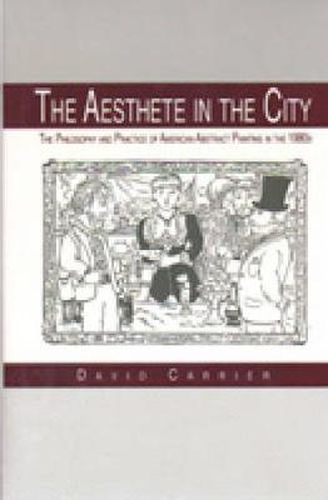Readings Newsletter
Become a Readings Member to make your shopping experience even easier.
Sign in or sign up for free!
You’re not far away from qualifying for FREE standard shipping within Australia
You’ve qualified for FREE standard shipping within Australia
The cart is loading…






In the 1980s, when the American art market flourished, critics were heavily concerned with theory. In The Aesthete in the City David Carrier offers a personal view on the artistic activity of that decade. He begins with a theoretical perspective on the relationship between two very different forms of artwriting: art criticism and art history writing. Carrier surveys the developments within theory during the 1980s, focusing on constructive critical analysis of the then fashionable work of Jean Baudrillard, Walter Benjamin, T. J. Clark, and Jacques Derrida. He provides detailed accounts of a number of painters, among them Thomas Nozkowski, David Reed, and Sean Scully, whose development he followed closely. Carrier argues that the greatest American artistic tradition, Abstract Expressionism, provides the basis for an ongoing tradition of abstract painting, a rich system whose potential has not yet been exhausted.
Carrier’s earlier work was concerned with a philosophical study of the methods of art criticism. This book turns to the theory and practice of art criticism, concentrating on a concrete discussion of individual theorists and artists.
$9.00 standard shipping within Australia
FREE standard shipping within Australia for orders over $100.00
Express & International shipping calculated at checkout
In the 1980s, when the American art market flourished, critics were heavily concerned with theory. In The Aesthete in the City David Carrier offers a personal view on the artistic activity of that decade. He begins with a theoretical perspective on the relationship between two very different forms of artwriting: art criticism and art history writing. Carrier surveys the developments within theory during the 1980s, focusing on constructive critical analysis of the then fashionable work of Jean Baudrillard, Walter Benjamin, T. J. Clark, and Jacques Derrida. He provides detailed accounts of a number of painters, among them Thomas Nozkowski, David Reed, and Sean Scully, whose development he followed closely. Carrier argues that the greatest American artistic tradition, Abstract Expressionism, provides the basis for an ongoing tradition of abstract painting, a rich system whose potential has not yet been exhausted.
Carrier’s earlier work was concerned with a philosophical study of the methods of art criticism. This book turns to the theory and practice of art criticism, concentrating on a concrete discussion of individual theorists and artists.